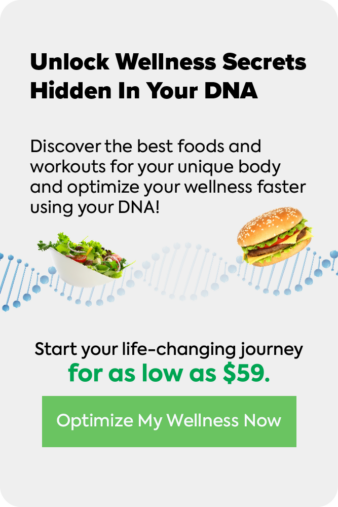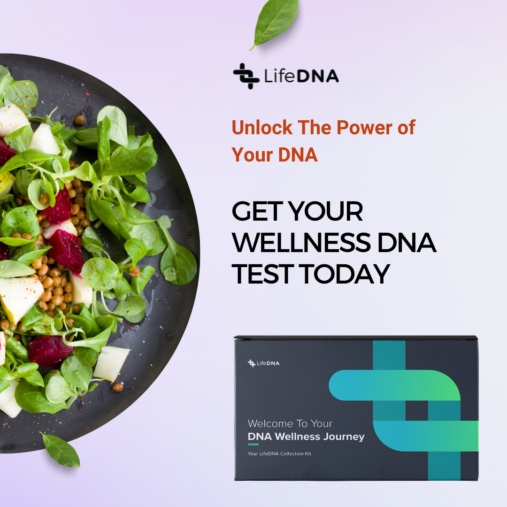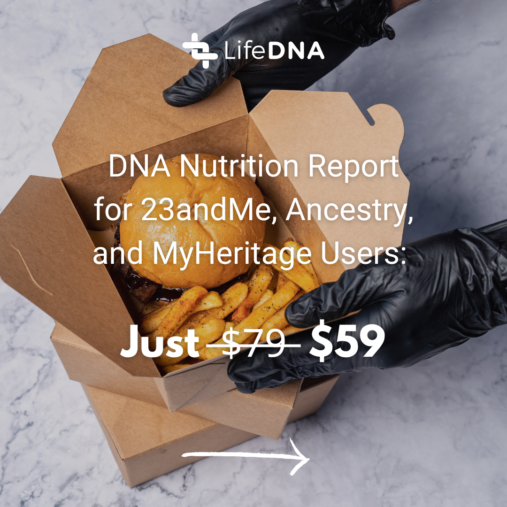Exploring DTC Genetic Testing: 31 Frequently Asked Questions
Aira
on
September 29, 2023
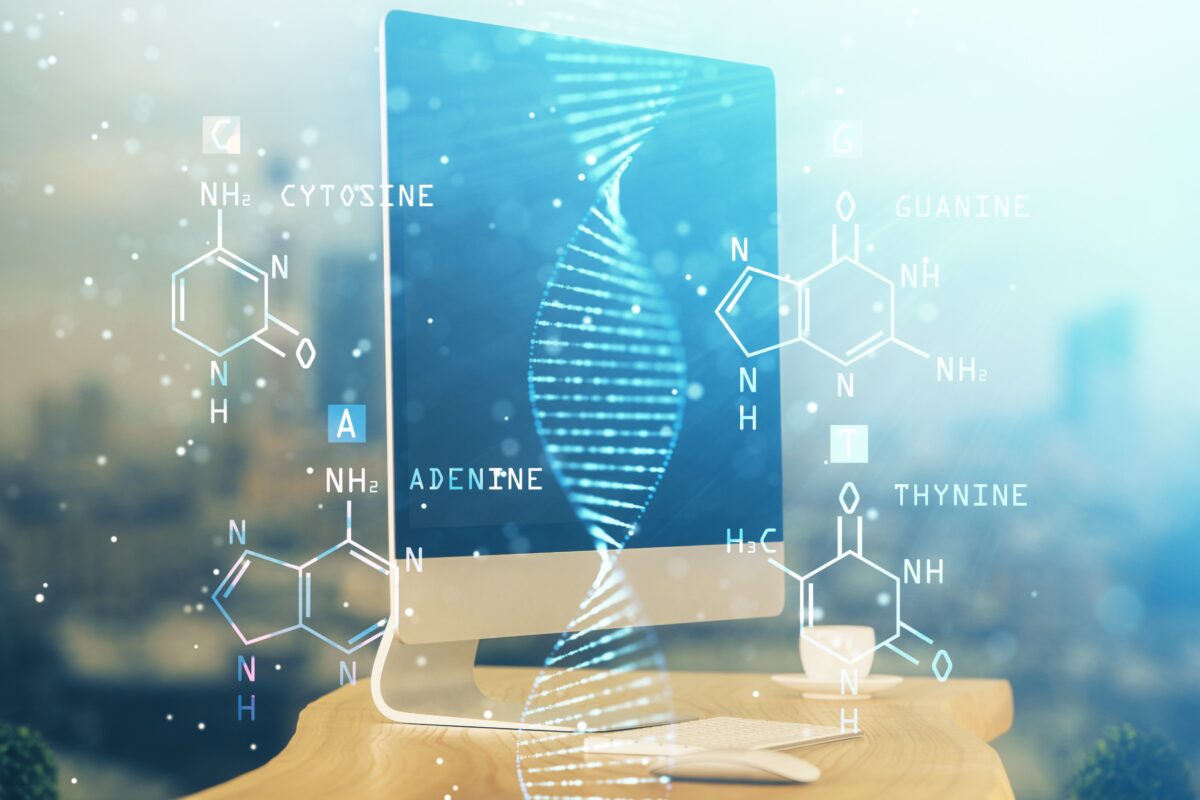
Latest Posts
Table of Contents
Exploring DTC Genetic Testing: 31 Frequently Asked Questions
Date of Content: September 21, 2023
Written by: Avanthika Nityanand
Reviewed by: Maarit Tiirikainen, PhD
Navigating the rapidly evolving world of genetics can be both exciting and overwhelming. With the rise of direct-to-consumer (DTC) genetic tests, many individuals have unprecedented access to their genetic information, unlocking secrets about ancestry, health predispositions, and even traits. As with any pioneering technology, a multitude of questions arises. In this guide, we’ll delve into 31 of the most frequently asked questions about DTC genetic tests, offering clarity for those eager to understand more about what these tests can provide and their implications.
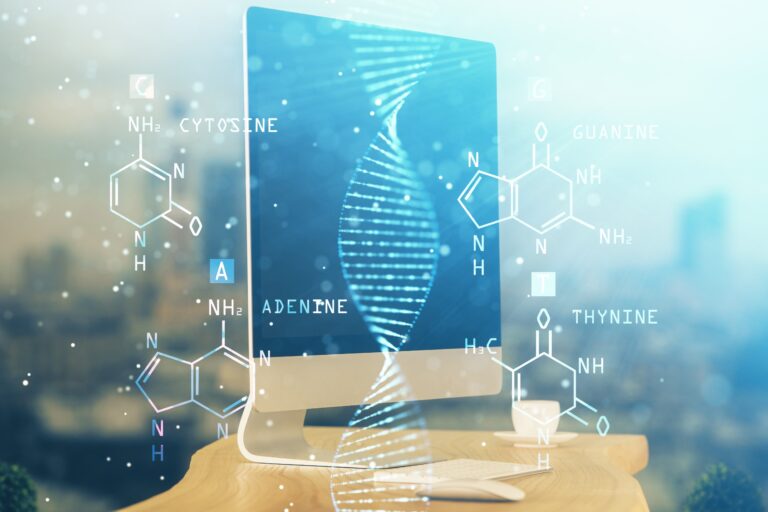
What Is Genetic Testing?
Genetic testing examines changes in chromosomes and genes to ascertain genetic propensity to health conditions and the influence of a person’s genetic features on a wide range of lifestyle aspects like nutrition, fitness, supplement intake, and sleep. It includes direct-to-consumer (DTC) tests, available to consumers without a healthcare provider, and clinical genetic tests, which medical professionals administer.
Can I Use The Raw Data From My DTC Test With Third-Party Services?
Many DTC companies provide users with raw data, which can often be uploaded to third-party platforms for further analysis, though accuracy and quality can vary.
What Can Genetic Testing Tell You?
Genetic testing can show the presence or absence of gene variations (polymorphisms) that influence several aspects of your wellness and inform you of your ancestry. Genetic testing can also identify mutations directly affecting predisposition to certain conditions.
DTC genetic testing typically scores your DNA for common genetic variations or polymorphisms, and clinical genetic testing is more equipped to identify mutations, including the rare ones.
What Are Polymorphisms?
Polymorphisms are variations in DNA sequences that are common within a population. They are also known as genetic variations. While many mutations are very rare, polymorphisms represent the natural genetic diversity among individuals.
Are Mutations And Polymorphisms The Same?
Polymorphisms are common DNA variations found in many people, that is, in more than 1% of the population.
Mutations are rarer DNA changes often linked to health issues or some beneficial traits. For example, individuals with specific mutations in the SLC30A8 gene (solute carrier family 30, member 8) have a 65% reduced chance of developing diabetes, regardless of other risk factors such as obesity. On the other hand, a mutation in a single gene (CFTR) can cause the body to produce thick, sticky mucus that clogs the lungs and blocks ducts in digestive organs, a condition called cystic fibrosis.
What Is A Single Nucleotide Polymorphism (SNP)?
A single nucleotide polymorphism (SNP) is a type of polymorphism wherein there is variation in a single DNA building block, known as a nucleotide, at a specific position in the genome. These SNPs can act as biological markers, helping scientists locate genes associated with certain conditions. They can also influence response to diet, exercise, allergy predispositions, nutritional deficiencies, and several aspects of wellness like sleep and cognition.
How Is Genetic Testing Done?
DTC genetic testing uses a saliva or cheek swab that you can self-collect. The sample is sent to a lab where your DNA is extracted, genotyped, and analyzed using proprietary algorithms based on population studies and human genome databases.
What Is Genotyping?
Genotyping determines an individual’s genetic variants (like SNPs). It provides a snapshot of specific sites in an individual’s genome to understand their genetic makeup.
What's The Difference Between Whole Genome Sequencing (WGS) and Genotyping Done by Most DTC Tests?
Most DTC tests use genotyping to look for specific known genetic markers. However, WGS examines almost the entire length of an individual’s DNA.
Can I Skip Genotyping And Directly Opt For WGS?
You can skip genotyping and directly opt for WGS. While genotyping checks for specific pre-determined variants in the DNA, WGS examines all 3 billion base pairs of your DNA, providing a more comprehensive view of your genetics. If you’re looking for the most detailed genetic information available, WGS would be the choice. However, it is also more expensive than genotyping. Always consult with a genetic counselor or healthcare professional before making decisions about genetic testing.
How Often Do DTC Companies Update Their Databases And Findings As Science Evolves?
It varies by company, but many regularly update their databases and may notify users of new relevant findings.
Is Genetic Testing Accurate?
Most genetic tests are more than 99% accurate and identify specific genetic markers. However, a positive result doesn’t always mean you will develop the disease, just that you are at increased risk.
Are Genetic Tests Confidential?
Medical genetic tests are generally confidential and protected under US law. Still, privacy concerns exist, especially for DTC tests, despite several companies having detailed privacy policies and stringent protocols to protect their customers.
At LifeDNA, customer data privacy is the number one priority. Check this video to review all steps taken by LifeDNA to safeguard customer confidentiality and privacy.
How Do Companies Choose Which Genetic Markers To Test In DTC Kits?
Companies select genetic markers based on scientific research, clinical relevance, and consumer interest.
How Do DTC Genetic Tests Differ From Clinical Genetic Tests?
DTC tests are marketed directly to consumers and may focus on broader insights for wellness. For example, how well you process carbohydrates or your genetic predisposition to insomnia. On the other hand, healthcare providers recommend clinical genetic tests for specific medical reasons.
What Disease Risks Can Be Found Through Genetic Testing?
Clinical genetic testing can detect susceptibility to diseases such as cystic fibrosis, Huntington’s disease, certain types of cancers like those with BRCA1 and BRCA2 mutations, and many more.
We recommend reading this article for a more detailed report on all the different types of information you can get from genetic testing.
How Long Does Genetic Testing Take?
The time for testing varies but generally takes 4-6 weeks. If you already have your DNA raw data from companies like 23andMe or AncestryDNA, you can receive an analysis of up to 120+ traits within 1 hour with LifeDNA.
How Much Does Genetic Testing Cost?
Costs can vary from a hundred to a few thousand dollars depending on the complexity of the test. LifeDNA’s Signature package offers you a DNA sample collection kit, analysis of 120+ traits across six reports, 1-1 sessions with our counselors, and much more for just $199!
Is Genetic Testing Voluntary?
Taking a DTC genetic test is entirely your choice. However, doctors often recommend a clinical genetic test to confirm the diagnosis of conditions with well-established genetic links, such as breast cancer and Alzheimer’s disease.
What Should I Do If My DTC Genetic Test Indicates A Health Risk?
The first thing not to do is panic! Please remember that genetic testing is not deterministic but a part of the bigger picture, albeit an important one. Consult a healthcare professional or genetic counselor to understand the results and potential implications.
LifeDNA’s Platinum Membership subscription plan offers one-on-one consultations with our in-house genomics experts. Learn more here.
Can I Share My DTC Genetic Test Results With Family Members?
You ultimately control what you would like to do with your genetic information. Considering the potential emotional and privacy implications for you and your family is essential.
Do DTC Genetic Tests Provide Information On Carrier Status For Conditions I Could Pass To My Children?
Some DTC genetic tests offer carrier screening for specific conditions, but the scope and comprehensiveness vary among providers.
Do DTC Genetic Tests Provide Information About Potential Drug Sensitivities or Responses?
Some DTC tests offer insights into pharmacogenomics — how genes might affect drug responses.
Are There Any Potential Emotional Implications of Taking a DTC Genetic Test?
Results might reveal unexpected information about ancestry or potential health risks, which could be emotionally challenging. It is essential to remember that while genetics can significantly influence health and wellness outcomes, it is not deterministic. Always consult a healthcare provider for advice if you are unsure how to interpret your results.
How Can I Be Sure The DTC Testing Company Won’t Sell My Genetic Data?
It is essential to read the company’s privacy policy and user agreement. Some companies pledge not to sell individual data but might use aggregated, anonymized data for research.
At LifeDNA, we do not sell or share user information with any third-party companies. Read our complete privacy policy here.
Does Insurance Cover Genetic Testing in the US?
Coverage for genetic testing varies by insurance provider and individual circumstances. It is essential to consult with your insurance to understand your options.
Can DTC Genetic Tests Determine Paternity or Family Relationships?
Some DTC tests can identify close family relationships, making them useful for those seeking biological relatives or verifying paternity.
Is It Possible To Have A False Positive or Negative Result With DTC Genetic Tests?
DTC genetic tests offer a unique window into one’s genetic makeup but aren’t infallible. A false positive result occurs when the test inaccurately indicates the presence of a specific genetic variant and, therefore, a potential predisposition that isn’t truly there. It could lead someone to believe they have a heightened risk for a health condition when they don’t. On the other hand, a false negative result fails to detect a genetic variant or predisposition that is present, potentially giving a false sense of security regarding certain genetic risks.
Several factors can contribute to these inaccuracies, including the quality of the sample provided, the technology used, and the specific markers the test evaluates. It’s essential to approach DTC genetic test results cautiously and seek guidance and further confirmation from healthcare professionals for any health-related concerns.
What Steps Does LifeDNA Take To Avoid False Positives And False Negatives?
Quality Control Procedures: LifeDNA has partnered with labs that use advanced lab equipment and technologies with built-in quality control mechanisms. Samples that provide ambiguous or unclear results are often re-tested
Use of CLIA-Certified Labs: LifeDNA uses only laboratories certified by the Clinical Laboratory Improvement Amendments (CLIA). This certification means the lab meets high standards for quality and accuracy.
Regular Updates Based on New Research: As scientific understanding evolves, we update our testing algorithms and databases to reflect the latest research, ensuring to check for the most relevant and well-understood genetic markers.
Expert Review: LifeDNA has a team of genomics experts to vet the results before releasing them to the consumer.
Clear Communication: LifeDNA aims to communicate results clearly, distinguishing between high-confidence findings and those that might be more uncertain. We also provide information about the limitations of the tests and the potential for false results.
Reference Databases: LifeDNA uses large, well-curated genetic databases and publications as references to ensure that we choose and interpret genetic variants correctly.
Are DTC Genetic Tests Approved By Regulatory Agencies?
Some DTC genetic tests have been reviewed by regulatory agencies like the FDA.
What Is GINA?
GINA, or the Genetic Information Nondiscrimination Act, is a U.S. law that protects people from being mistreated because of differences in their DNA that might affect their health. It means employers and health insurers can’t discriminate against you based on genetic information.
Summary
- DTC genetic tests provide individuals access to their genetic information, revealing insights about ancestry, health-related predispositions, and traits.
- Using targeted genotyping or whole genome sequencing methods, these tests can identify gene variations influencing wellness and ancestry.
- Privacy concerns exist with DTC genetic tests, but some companies, like LifeDNA, prioritize data protection and customer confidentiality.
- Results from DTC tests can have implications like unexpected ancestry findings or potential health risks, prompting the need for careful consideration and consultation with healthcare professionals.
- DTC genetic tests vary in approval by regulatory agencies, and while the FDA has reviewed some tests, others have not been reviewed. GINA is a U.S. law ensuring genetic information non-discrimination.
Customer Reviews




Customer Reviews




*Understanding your genetics can offer valuable insights into your well-being, but it is not deterministic. Your traits can be influenced by the complex interplay involving nature, lifestyle, family history, and others.
Our reports and suggestions do not diagnose or treat any health conditions or provide any medical advice. Consult with a healthcare professional before making any major lifestyle changes or if you have any other concerns about your results.
References
- https://www.genome.gov/genetics-glossary/Polymorphism
- https://www.sciencedirect.com/topics/medicine-and-dentistry/genetic-polymorphism#
- https://www.ncbi.nlm.nih.gov/pmc/articles/PMC4791022/
- https://bio.libretexts.org/Bookshelves/Introductory_and_General_Biology/Introductory_Biology_(CK-12)/04%3A_Molecular_Biology/4.10%3A_Mutation_Effects#
- https://www.genome.gov/genetics-glossary/Single-Nucleotide-Polymorphisms
- https://www.genome.gov/17516714/2006-release-about-whole-genome-association-studies
- https://www.cancer.gov/about-cancer/causes-prevention/genetics/brca-fact-sheet
- https://www.nia.nih.gov/health/alzheimers-disease-genetics-fact-sheet
*Understanding your genetics can offer valuable insights into your well-being, but it is not deterministic. Your traits can be influenced by the complex interplay involving nature, lifestyle, family history, and others.
Our reports have not been evaluated by the Food and Drug Administration. The contents on our website and our reports are for informational purposes only, and are not intended to diagnose any medical condition, replace the advice of a healthcare professional, or provide any medical advice, diagnosis, or treatment. Consult with a healthcare professional before making any major lifestyle changes or if you have any other concerns about your results. The testimonials featured may have used more than one LifeDNA or LifeDNA vendors’ product or reports.
- Category: LifeDNA

